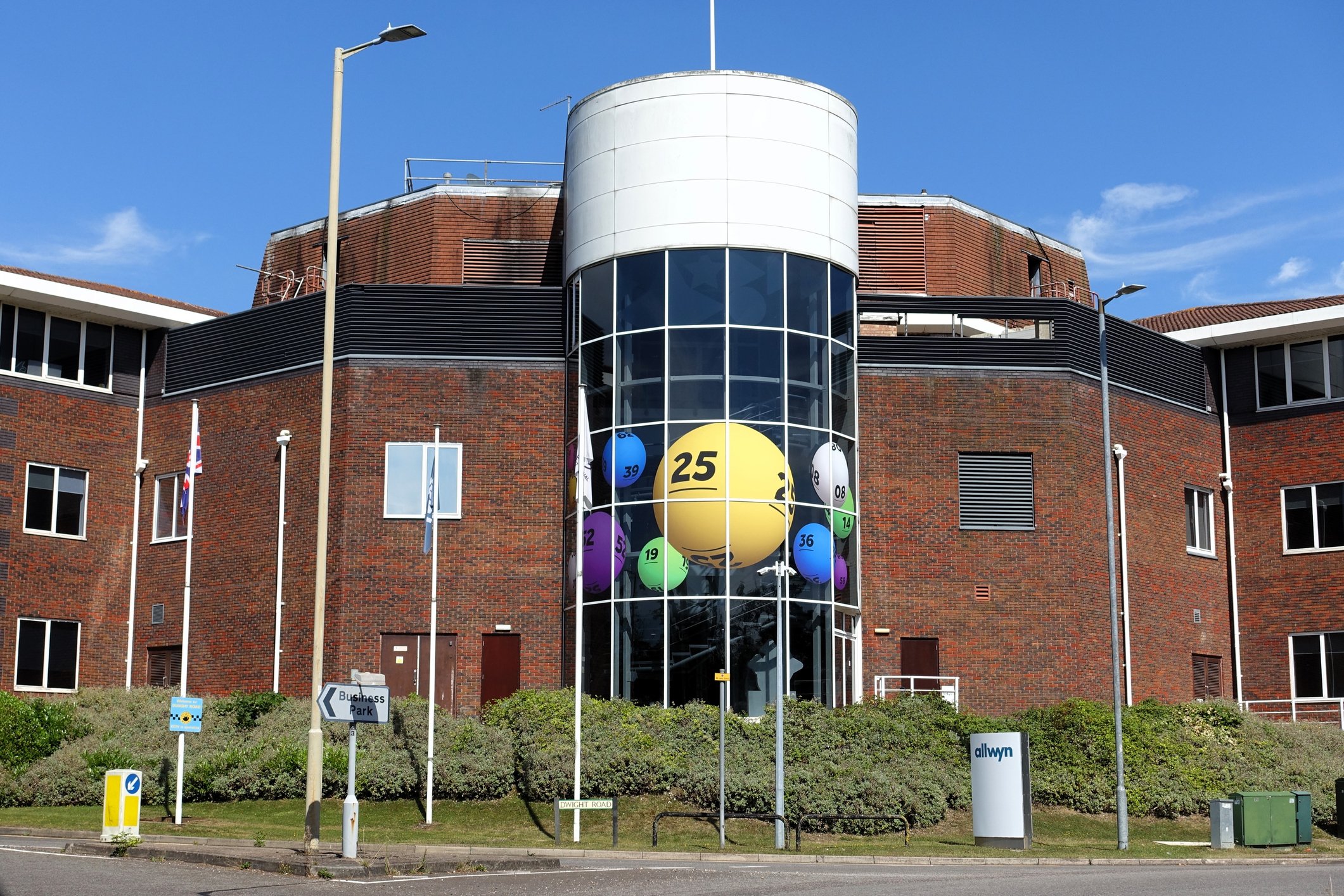
Allwyn's UK Head Office in Tolpits Lane, Watford
Photo: Peter Fleming
National Lottery at 30: New operator facing ‘raft of issues’
Having generated in excess of £49bn for good causes, there is plenty for the National Lottery to celebrate as it turns 30. However, a divisive change in operator earlier this year has left it facing a number of challenges.
The new operator of the National Lottery is facing a range of problems as it battles to fulfil a promise to increase funding for good causes, including arts and culture, it has been claimed.
According to The Telegraph, Allwyn, which took over the licence from Camelot in February, had sought to generate a turnover of between £10.4bn and £10.5bn in the first year – compared with revenue of £8.2bn for Camelot in 2022/23 – but is currently expecting to generate £7.8bn in sales.
Allwyn denies it saying it would raise more than £10bn in the first year, but the company had promised to raise £38bn for good causes over the next decade, with a projected £760m going to the arts each year.
To achieve this, it has planned to increase sales of draw-based games that donate a greater proportion of profits to good causes. But it has reportedly faced a number of technical challenges.
Technology issues
An Allwyn insider told The Telegraph that a switch to a new core technology provider from International Game Technology (IGT), which has held the contract since 1994, has proven problematic, describing the planned move as “one of biggest tech transitions undertaken by a lottery provider anywhere”.
A source from Camelot, which previously held the National Lottery contract, claimed tech experts had compared the plans to “trying to stick a Microsoft system on top of an Apple computer”.
Meanwhile, trouble with a system that automatically replenishes scratchcards at newsagents resulted in some retailers being left out of stock.
Allwyn said that as a result of moving its entire distribution operation for its scratchcard to a new eco-friendly warehouse in Warrington in February it initially experienced some “short-term scratchcard replenishment challenges”, but added that these have now been resolved.
On top of this, it has been claimed that the arrival of new National Lottery terminals to all 40,000 partnered stores has been delayed by “at least half a year”.
Allwyn has said that it while some of the phasing of the plan to overhaul the National Lottery retail estate has slightly changed, much of the work has already been going on and the terminal rollout is on track to start in November.
It also denies it said it would raise more than £10bn in the first year.
Allwyn is owned by the Czech billionaire Karel Komárek, who has faced scrutiny over his former business connections to Russia. His holding company, KKCG, agreed to end all ties with Russia’s state-owned energy company, Gazprom, by the end of June.
This month, Allwyn relocated its headquarters from the Czech Republic to Switzerland.
In its bid for the lottery contract, the company promised to raise £38bn for good causes over the next decade, £7.6bn of which would go to the arts (£760m per year).
Allwyn took over the running of the National Lottery in February
The amount is more than double the £17.9bn that Camelot generated in the previous decade, but Allwyn cast doubt over its ability to deliver on this goal before even taking the reins.
While the company insisted it was sticking to its 10-year goal, group chief executive Robert Chvátal told the Financial Times in 2023 that a “headwind” could impact returns for the first two years.
The National Lottery’s allocation of funds to the arts was down 3.1% in 2023/24, as the total net amount of operating proceeds made available for good causes dropped for the third successive year.
The share of National Lottery income awarded to the arts in 2023/24 was £347m, down from £358m the previous year.
Essential modernisation
Allwyn’s chief executive, Andria Vidler, has said she is “filled with optimism about how the company’s innovation will boost funding for National Lottery good causes”.
Confirming the commencement of the new lottery licence in February, the Gambling Commission said: “Over the next 10 years, the fourth licence will lead to an increase in returns to good causes whilst keeping the National Lottery safe to play.”
An Allwyn spokesperson said: “Allwyn has invested more than £350m into the essential modernisation of the National Lottery, which is held back by technology dating back to 2009 before iPads or Instagram.”
“We have made this investment despite over two years of near-continuous and disruptive legal actions brought by parties disappointed by the outcome of the Fourth National Lottery Licence competition.
“We remain committed to our objective to double weekly contributions to good causes from £30m to £60m a week over the course of the 10-year licence.”
“Since taking over on 1 February, we’ve already made significant progress on our 10-year transformation of The National Lottery.
“For example, we’ve started overhauling our 40,000-strong National Lottery retail estate, launched a number of new campaigns and products (including Paris 2024, Lotto and Set For Life campaigns), and introduced a number of new player protection measures – including our pioneering new scratchcard purchase limit.
“All of this, and so much more, is laying the groundwork as we look to reinvigorate The National Lottery, bringing back the magic and enabling us to generate more money than ever before for National Lottery-funded projects over the next decade.”
Join the Discussion
You must be logged in to post a comment.